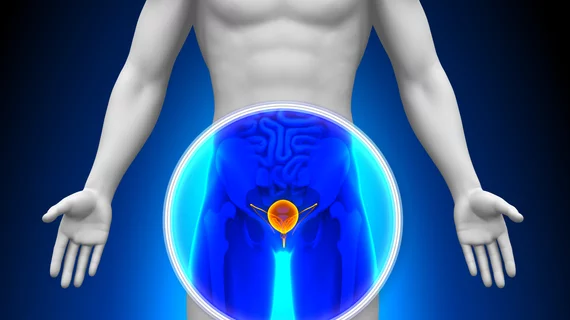Stereotactic body radiation therapy (SBRT) is both safe and effective for men with low-and intermediate-risk prostate cancer, according to research presented Oct. 22 at the American Society for Radiation Oncology (ASTRO) Annual Meeting.
“This study should allay the fears of those who prefer to undertake a shorter treatment course that they can do so safely and with the same, positive outcomes they would receive from a longer course of treatment,” said lead author Amar U. Kishan, MD, with the University of California, Los Angeles (UCLA) in a statement.
In the study, researchers evaluated data from 2,142 men enrolled in institutional phase II trials of SBRT from 2000 to 2012. The data was taken from 10 institutional trials and two multi-institutional studies. Of the total, 55.3 percent had low-risk disease, 32.3 percent favorable intermediate-risk and 12.4 percent unfavorable intermediate-risk.
A majority of patients were either treated daily (47.3 percent) or every other day (47.4 percent); a small ratio (5.3 percent) were treated once a week. Doses ranged from 33.5 to 40 Gray and were administered in four or five fractions. Median follow-up time for patients was 6.9 years, depending on risk type.
Researchers measured the safety and effectiveness of SBRT based on: cumulative incidence of biochemical recurrence; cumulative incidence of distant metastases; biochemical recurrence-free survival; and overall survival.
Zero patients in the study died of prostate cancer. Overall, cancer recurred in 100 patients and metastasized in 10 individuals. Of those in the low-risk group, more than 95 percent did not experience BCR at seven year follow-up. Additionally, low-risk and favorable intermediate-risk groups survived an average of 91.4 and 93.7 years, respectively.
“These numbers are identical, if not superior, to other types of more commonly used radiation techniques,” Kishan said. “There is no evidence of worse toxicity with SBRT. We have shown that this method is both safe and effective and should be a standard treatment option for patients with low- and intermediate-risk prostate cancer.”

